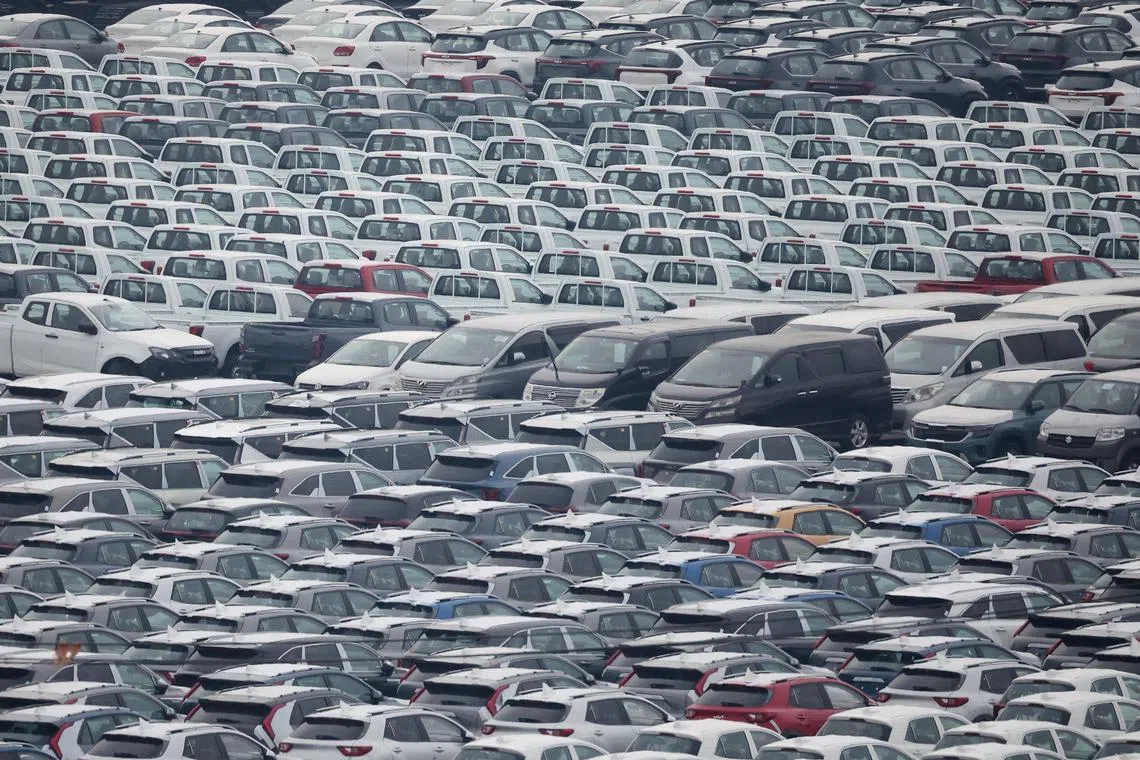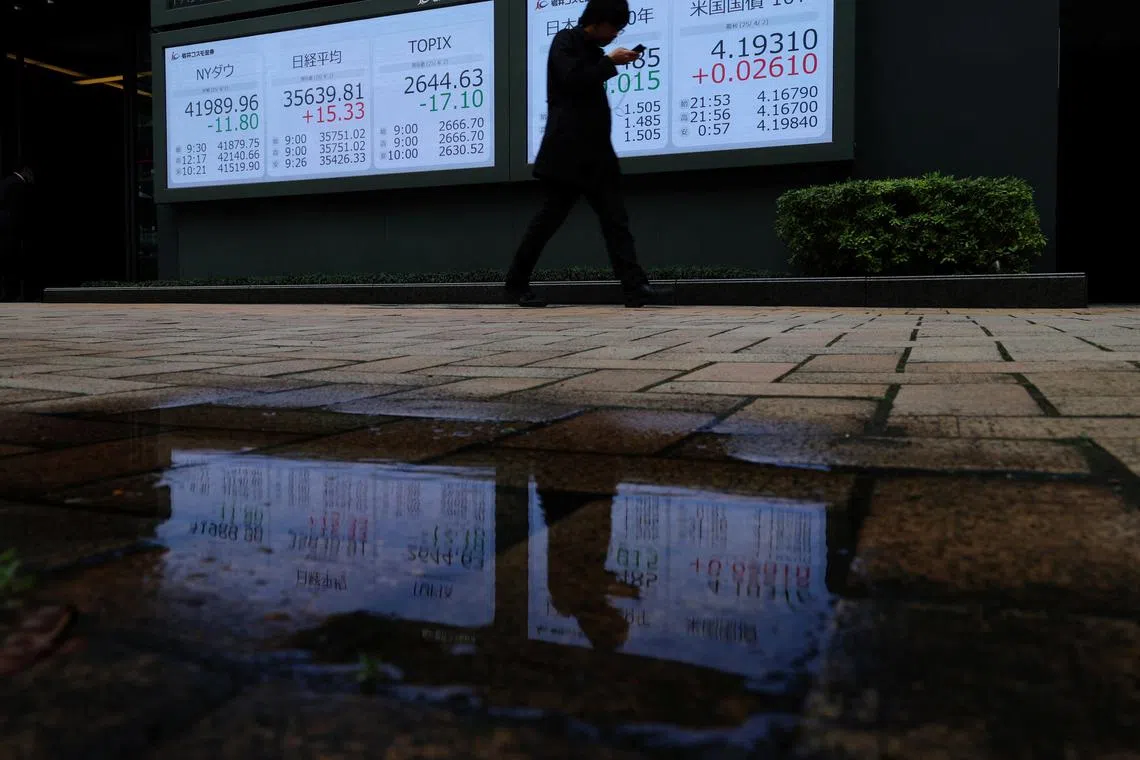Trump makes auto tariffs official ahead of ‘Liberation Day’ trade announcement
Sign up now: Get ST's newsletters delivered to your inbox

The US will impose 25 per cent tariffs on automobile imports on April 3 and a similar duty on auto parts a month later.
PHOTO: REUTERS
WASHINGTON – The US government said on April 2 that it will impose 25 per cent tariffs on automobile imports
Mr Trump’s “Liberation Day” announcement is expected to undo trade arrangements that have been in place since 1947 and lead to countermeasures from close US allies.
Mr Trump has kept the world guessing on the details ahead of a White House Rose Garden announcement ceremony scheduled for 4pm Eastern Time (4am on April 3 in Singapore).
A person familiar with the administration’s deliberations said the tariffs are expected to be significant and would hit a wide range of countries, including close allies.
Another source said Mr Trump could revoke the US$800 (S$1,075) “de minimus” exemption for small-value shipments from China.
The new tariffs are due to take effect immediately after Mr Trump announces them, though the administration has not yet published an official notice as it is required to do.
The administration, however, did publish an official notice that a separate set of tariffs on auto imports that Mr Trump announced last week will take effect.
“IT’S LIBERATION DAY IN AMERICA!” Mr Trump wrote on his social media platform.
Mr Trump, who once called the word tariff the “most beautiful word in the dictionary,” has said his reciprocal plans would match US rates with higher levels charged by other countries and counteract their non-tariff barriers that he says disadvantage US exports.
Mr Trump’s trade adviser Peter Navarro said the auto tariffs would return strategically vital manufacturing capabilities to the United States. “This isn’t protectionism. It’s restoration,” he wrote in USA Today.
Mr Doug Ford, premier of the Canadian province of Ontario, said he was not sure whether Trump officials understood the US auto industry’s supply chain system, which is tightly linked with other countries. “This is the most ridiculous thing I have ever seen,” he said on CNBC.
Outside economists have warned that tariffs could slow the global economy, raise the risk of recession, and increase living costs for the average US family by thousands of dollars. Businesses have complained that Trump’s barrage of threats has made it difficult to plan their operations.
“I can’t recall a situation where the stakes were this high and yet the outcome was so unpredictable,” said Mr Steve Sosnick, chief strategist at Interactive Brokers. “The devil is going to be in the details and nobody knows the details.”

Stocks are skidding as growing uncertainty over the Trump tariffs erodes investor confidence.
PHOTO: REUTERS
Across sectors, from cars to ocean freight shipping, luxury goods and beyond, business leaders waited to see what would hit them.
“You cannot make important decisions on your supply chain when the rules of the game keep changing,” said Mr Peter Sand, chief analyst at freight pricing platform Xeneta. France expected a “pretty powerful” hit that could see tariffs in the range of 20 per cent-25 per cent.
Stacking tariffs
In just over 10 weeks since taking office, Trump has imposed new 20 per cent duties on all imports from China and fully restored 25 per cent duties on steel and aluminium
On April 2, the administration said that would include all beer and empty aluminum can imports.
A month-long reprieve for most Canadian and Mexican goods from his 25 per cent fentanyl-related tariffs is due to expire on April 2.
Administration officials have said that all of Mr Trump’s tariffs stack atop prior rates, so a Mexican-built car previously charged 2.5 per cent to enter the US would be subject to both the fentanyl tariffs and the autos sectoral tariffs, for a 52.5 per cent tariff rate – plus any reciprocal tariff Mr Trump may impose on Mexican goods.
Growing uncertainty over the duties is eroding investor, consumer and business confidence. Global stocks retreated on April 2, while safe-haven gold held near record highs.
US stocks have erased nearly US$5 trillion of value since February.
The dollar and other currencies held in tight ranges on April 2 as traders awaited details of Mr Trump’s plans. Tariff concerns have already slowed manufacturing activity across the globe, while also spurring sales of autos and other imported products as consumers rush to make purchases before prices rise.
Retaliatory measures
Trading partners including Australia, the European Union, Canada and Mexico have vowed to respond with retaliatory tariffs and other countermeasures, even as some have sought to negotiate with the White House.
Mr Trump has argued that American workers and manufacturers have been hurt for decades by free-trade deals that have lowered barriers to global commerce and fueled the growth of a US$3 trillion US market for imported goods, leading to a goods trade deficit that exceeds US$1.2 trillion.
But a 20 per cent tariff on top of those already imposed would cost the average US household at least US$3,400, according to the Yale University Budget Lab. REUTERS


